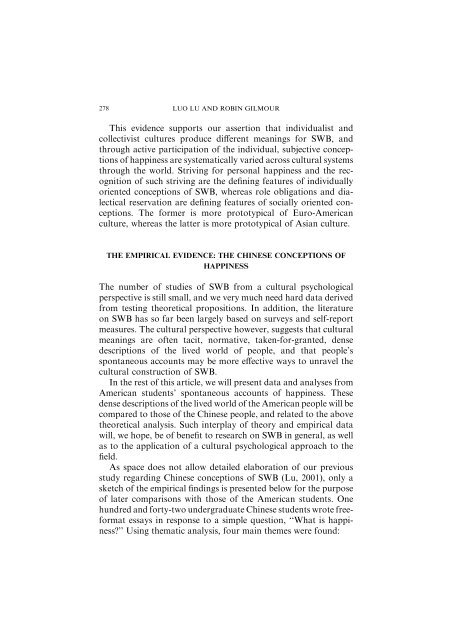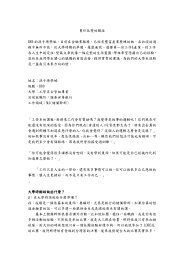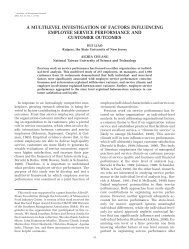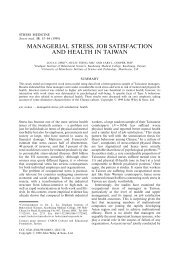CULTURE AND CONCEPTIONS OF HAPPINESS: INDIVIDUAL ...
CULTURE AND CONCEPTIONS OF HAPPINESS: INDIVIDUAL ...
CULTURE AND CONCEPTIONS OF HAPPINESS: INDIVIDUAL ...
Create successful ePaper yourself
Turn your PDF publications into a flip-book with our unique Google optimized e-Paper software.
278LUO LU <strong>AND</strong> ROBIN GILMOURThis evidence supports our assertion that individualist andcollectivist cultures produce different meanings for SWB, andthrough active participation of the individual, subjective conceptionsof happiness are systematically varied across cultural systemsthrough the world. Striving for personal happiness and the recognitionof such striving are the defining features of individuallyoriented conceptions of SWB, whereas role obligations and dialecticalreservation are defining features of socially oriented conceptions.The former is more prototypical of Euro-Americanculture, whereas the latter is more prototypical of Asian culture.THE EMPIRICAL EVIDENCE: THE CHINESE <strong>CONCEPTIONS</strong> <strong>OF</strong><strong>HAPPINESS</strong>The number of studies of SWB from a cultural psychologicalperspective is still small, and we very much need hard data derivedfrom testing theoretical propositions. In addition, the literatureon SWB has so far been largely based on surveys and self-reportmeasures. The cultural perspective however, suggests that culturalmeanings are often tacit, normative, taken-for-granted, densedescriptions of the lived world of people, and that people’sspontaneous accounts may be more effective ways to unravel thecultural construction of SWB.In the rest of this article, we will present data and analyses fromAmerican students’ spontaneous accounts of happiness. Thesedense descriptions of the lived world of the American people will becompared to those of the Chinese people, and related to the abovetheoretical analysis. Such interplay of theory and empirical datawill, we hope, be of benefit to research on SWB in general, as wellas to the application of a cultural psychological approach to thefield.As space does not allow detailed elaboration of our previousstudy regarding Chinese conceptions of SWB (Lu, 2001), only asketch of the empirical findings is presented below for the purposeof later comparisons with those of the American students. Onehundred and forty-two undergraduate Chinese students wrote freeformatessays in response to a simple question, ‘‘What is happiness?’’Using thematic analysis, four main themes were found:

















